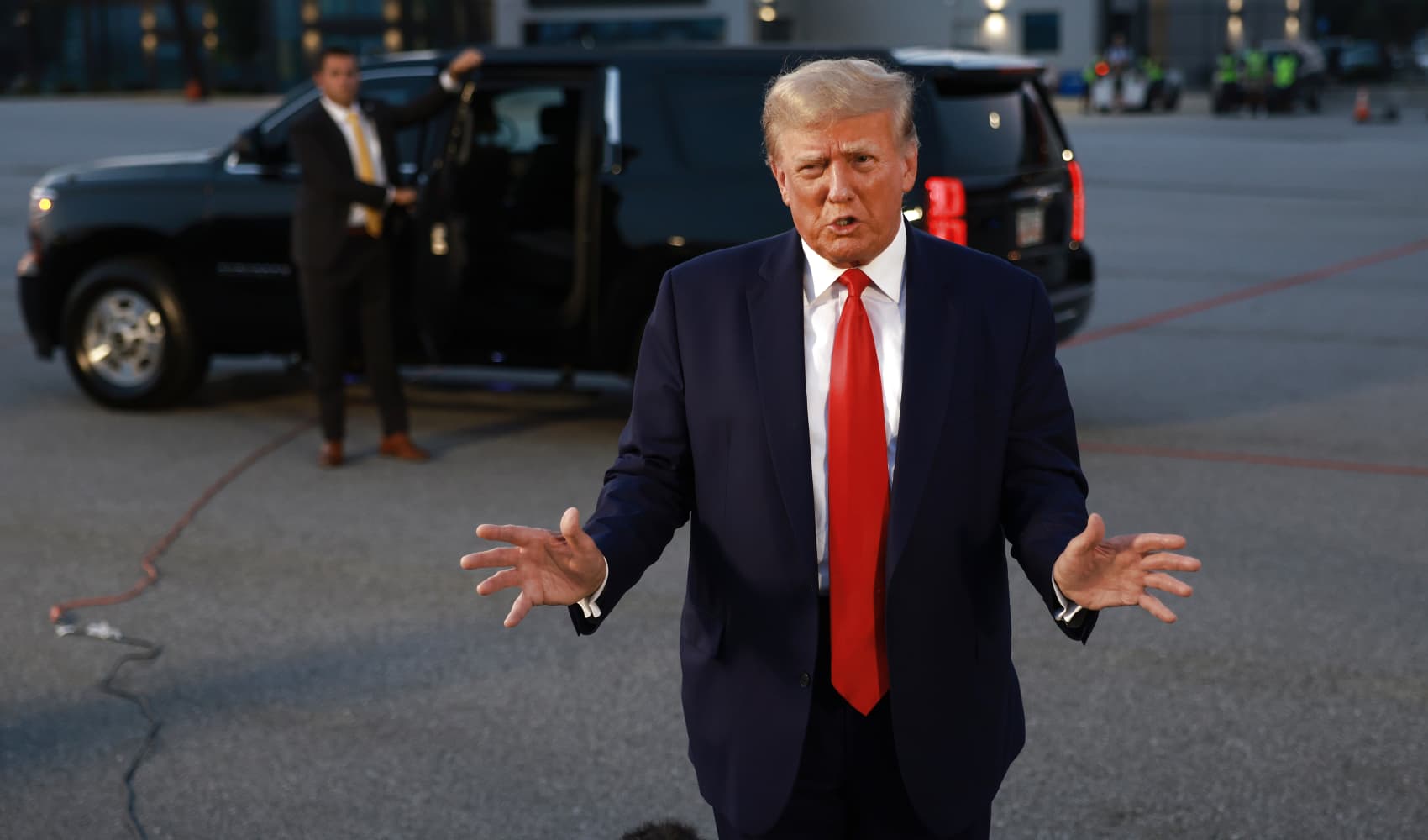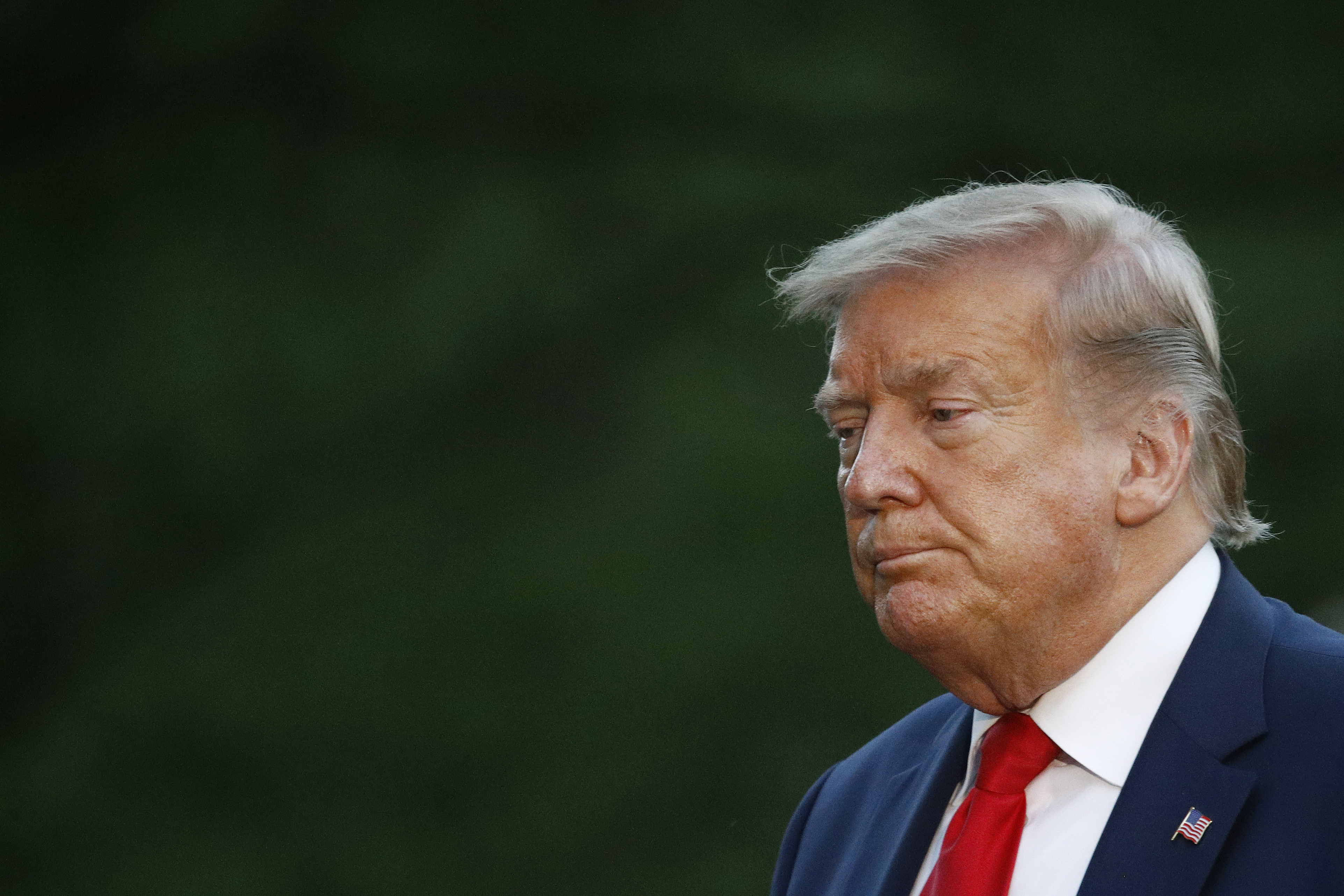The Supreme Court on Thursday appeared likely to reject former President Donald Trump’s claim of absolute immunity from prosecution over election interference, but several justices signaled reservations about the charges that could cause a lengthy delay, possibly beyond November’s election.
A majority of the justices did not appear to embrace the claim of absolute immunity that would stop special counsel Jack Smith's prosecution of Trump on charges he conspired to overturn his 2020 election loss to Democrat Joe Biden. But in arguments lasting more than 2 1/2 hours in the court’s first consideration of criminal charges against a former president, several conservative justices indicated they could limit when former presidents might be prosecuted, suggesting that the case might have to be sent back to lower courts before any trial could begin.
Justice Samuel Alito said that “whatever we decide is going to apply to all future presidents.”
The timing of the Supreme Court’s decision could be as important as the outcome. Trump, the presumptive 2024 Republican presidential nominee, has been pushing to delay the trial until after the election, and the later the justices issue their decision, the more likely he is to succeed. If Trump regains the presidency, he could order the Justice Department to dismiss the case, or possibly, as two justices suggested, pardon himself if convicted.
Since conservatives on the court gained a supermajority with the confirmation of three Trump appointees, they have cast aside decades-old long precedent on abortion and affirmation action. Now Trump is asking them to rule that one of the fundamental tenets of the American system of government — that no person is above the law -- should be rejected as well, at least as it applies to him.
The active questioning of all nine justices left the strong impression that the court was not headed for the sort of speedy, consensus decision that would allow a trial to begin quickly.
Justices Neil Gorsuch and Brett Kavanaugh, two of Trump’s three high court appointees, and Alito said their concern was not the case against Trump, but rather the effect of their ruling on future presidencies.
Each time Justice Department lawyer Michael Dreeben sought to focus on Trump’s actions, these justices jumped in. “This case has huge implications for the presidency, for the future of the presidency, for the future of the country,” Kavanaugh said. The court is writing a decision “for the ages,” Gorsuch said.
Justice Amy Coney Barrett, the other Trump appointee, seemed less open to arguments advanced by Trump lawyer D. John Sauer, searching for a way a trial could take place.
Feeling out of the loop? We'll catch you up on the Chicago news you need to know. Sign up for the weekly Chicago Catch-Up newsletter.
Smith’s team is asking for a speedy resolution. The court typically issues its last opinions by the end of June, about four months before the election. U.S. District Judge Tanya Chutkan, who would preside over the trial, said pre-trial issues could take up to three months.
The court has moved very quickly in prior cases involving presidential power, deciding the Watergate tapes case against President Richard Nixon just 16 days after arguments. Earlier this year, it took the justices less than a month to rule unanimously that states couldn't kick Trump off the ballot.
Trump, the first former president charged with crimes, had said he wanted to be at the Supreme Court on Thursday. Instead, he was in a courtroom in New York, where he is standing trial on charges that he falsified business records to keep damaging information from voters when he directed hush money payments to a former porn star to keep quiet her claims that they had a sexual encounter.
Sauer argued that former presidents are entitled to absolute immunity for their official acts. Otherwise, he said, politically motivated prosecutions of former occupants of the Oval Office would become routine and presidents couldn't function as the commander in chief if they had to worry about criminal charges.
Lower courts have rejected those arguments, including a unanimous three-judge panel on an appeals court in Washington, D.C.
Several justices drilled down on trying to come up with a definition of what constituted an official act, and whether charges based on one should be thrown out.
Justice Elena Kagan at one pointed wondered whether a former president could escape prosecution even if he ordered a coup or sold nuclear secrets. Sauer said prosecutions might not be allowed it those were determined to be official acts.
“That sure sounds bad, doesn't it?” Kagan asked.
Chief Justice John Roberts conjured up a president being indicted for receiving a bribe in exchange for an ambassadorial appointment. How could the indictment go forward if prosecutors had to remove the official act, the appointment. “That's like a one-legged stool, right?” Roberts asked.
The election interference conspiracy case brought by Smith in Washington is just one of four criminal cases confronting Trump. Smith was in the courtroom Thursday, seated at the table for lawyers taking part in the case.
Smith’s team says the men who wrote Constitution never intended for presidents to be above the law and that, in any event, the acts Trump is charged with — including participating in a scheme to enlist fake electors in battleground states won by Biden — aren’t in any way part of a president’s official duties. Dreeben said that even if some of the acts are considered part of the president's powers, like talking to Justice Department officials, they still should be kept in the indictment.
Trump's conversations with then-Vice President Mike Pence, urging him to reject some electoral votes on Jan. 6, 2021, might also fall under official acts.
Barrett asked Dreeben whether Smith's team could “just proceed based on the private conduct and drop the official conduct.” Dreeben said that might be possible, especially if prosecutors could, for example, use the conversations with Justice Department officials and Pence to make their case.
Nearly four years ago, all nine justices rejected Trump’s claim of absolute immunity from a district attorney’s subpoena for his financial records. That case played out during Trump’s presidency and involved a criminal investigation, but no charges.
Justice Clarence Thomas, who would have prevented the enforcement of the subpoena because of Trump’s responsibilities as president, still rejected Trump’s claim of absolute immunity and pointed to the text of the Constitution and how it was understood by the people who ratified it.
“The text of the Constitution … does not afford the President absolute immunity,” Thomas wrote in 2020.
Commentators had speculated about why the court took up the case in the first place.
Phillip Bobbitt, a constitutional scholar at Columbia University’s law school, said he worries about the delay, but sees value in a decision that amounts to “a definitive expression by the Supreme Court that we are a government of laws and not of men.”
The court also may be more concerned with how its decision could affect future presidencies, Harvard law school professor Jack Goldsmith wrote on the Lawfare blog.
But Kermit Roosevelt, a law professor at the University of Pennsylvania, said the court never should have taken the case because an ideologically diverse panel of the federal appeals court in Washington adequately addressed the issues.
“If it was going to take the case, it should have proceeded faster, because now, it will most likely prevent the trial from being completed before the election,” Roosevelt said. “Even Richard Nixon said that the American people deserve to know whether their president is a crook. The Supreme Court seems to disagree.”
The court has several options for deciding the case, though something between a complete win for Trump or prosecutors seemed most likely.
The court might spell out when former presidents are shielded from prosecution. It could then either declare that Trump's alleged conduct easily crossed the line or return the case to Chutkan so she can decide whether Trump should have to stand trial.



